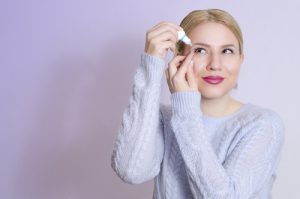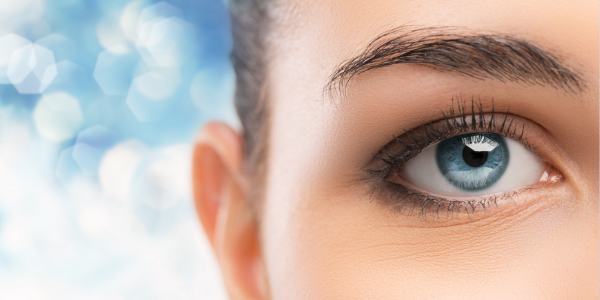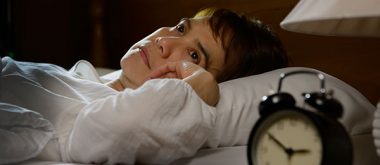Menopause, the point in a woman’s life when she stops having her period and can no longer get pregnant naturally, can be an uncomfortable process. Many women experience hot flashes, mood swings, insomnia, weight gain and other symptoms during this time. One of the most common effects of menopause that many people are not aware of is the effect on women’s eye health.
Effects of Menopause on Eye Health
The most common symptom associated with menopause is dry eyes, which may lead to irritation and redness. The causes of dry eyes are decreased tear production, tear evaporation and inadequate tears. In addition, many people report issues seeing at night because their pupils do not dilate as much after reaching this stage in life due to lowered estrogen and androgen levels. A drop in these hormones causes the decrease of the saline solution inside the eye’s inner film and the oily substance, which leads to dryness. This is why it is essential to have regular eye exams when you reach menopause.
Treating dry eyes is easy! The first thing you should do is try using artificial tears to lubricate your eyes. If your tear ducts are not draining correctly, a doctor may prescribe eye drops to help them drain more effectively and increase the amount of moisture in the area. Additionally, dry eyes can be addressed through lubricating ointments and gels that provide a long-lasting coating.
A more severe issue may occur during this time in a woman’s life: changes to her eyes due to blurred vision, cataracts, or even glaucoma, which can lead to blindness if not detected early enough. These effects on your eyesight tend to get better over time if you begin taking estrogen, but there are some things you can look into right away: drink plenty of water throughout the day (it helps with dryness), change your diet (adding more omega fatty acids like fish oil) and use lubricating drops for relief from irritation.
Cataracts can also be surgically removed. The cloudy lens is replaced with a clear artificial lens which may make your sight even better than when you had no cataracts.
Another serious condition that may develop during menopause is glaucoma, which can lead to blindness. During the early stages of this disorder, you will experience a decrease in your peripheral vision and headaches or eye pain—intraocular pressure that occurs during menopause damages the optic nerve, rendering one blind.
Glaucoma has no cure, but it can be surgically removed, and the patient can be put on medication. You should see an ophthalmologist if you notice any changes to your eyesight, even if it is not related to the symptoms of menopause.
Many women might ignore changes in their pupil size, but this symptom can lead to vision problems like blurred or double vision. This is typically due to hormonal fluctuations in your eyelid’s opening and closing motion changing over time. You can prevent this from happening by applying moisturizers and using lubricating drops to your eyes throughout the day. Additionally, you should make sure that you are wearing sunglasses when going outside to reduce glare off of surfaces like snow or water, which may affect your vision. The good news about these eye problems is that most of them can be treated with artificial tears, lubricating drops or even surgical procedures, which is why you must pay attention to your eyesight during this stage in your life.
Best Ways of Preventing Eye Problems Due to Menopause

- Get a regular eye exam
- Use artificial tears and lubricating drops
- Stay hydrated
- Maintain a healthy and balanced diet
- Wear sunglasses when going outside, especially when around surfaces that reflect light
Symptoms to Look Out For
You should be familiar with symptoms of eye problems and visit a doctor to address them as early as possible. Some of the symptoms include the following:
- Eye irritation and redness
- Blurred vision due to problems with pupil size and eyelid position
- Tunnel vision, headaches or eye pain
Conclusion
Menopause does not have to mean the end of your vision, as eye problems can be treated through artificial tears, lubricating drops and surgery. However, if you experience any symptoms such as blurred or double vision, you should see an ophthalmologist right away to prevent further damage from occurring.





